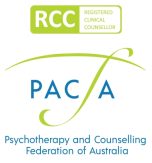You can grow beyond your limitations, reclaim your Self, and be free.
Counselling and therapy in a safe, comfortable, and private setting
Welcome, and thank you for visiting Psycho-Energetic Therapy.
My name is Carola Maier. I am a psychotherapist and counsellor with over 30 years’ experience. I provide both short- and long-term therapy in Mount Barker, in the Adelaide Hills of South Australia.
As a clinical member of the Psychotherapy and Counselling Federation of Australia, I work with people from all walks of life and backgrounds who are experiencing a diverse range of problems
We all experience times of difficulty in our lives, when events or relationships feel overwhelming, or we can feel a loss of direction or purpose.
Talking to a trained professional helps us make sense of those challenging times and offers a way through them, moving towards a better understanding of ourselves and our feelings.
How can counselling help?
Life brings many challenges, and it is understandable that at times we might look for support in facing them. As a counsellor my role is to provide space and guidance to help you on your journey of self-discovery; to enable you to examine your life and make new, meaningful choices within it.
Counselling and psychotherapy help us to journey into the inner realms of our hearts and minds. The aim of this journey is to find and reconnect with those parts of ourselves that we have lost or shut away. This may have occurred because of trauma or grief or simply because those parts of our being were not accepted by our parents or society. Early on we have allowed ourselves to be conditioned into what our parents or society deemed ‘appropriate behaviour’. Thus, to survive and get our basic needs met, we learnt to fit in. However, in the process, we had to sever the connection with some parts of ourselves.
Counselling, unlike psychotherapy, has a more external focus. It excels in helping you to deal with less serious issues, such as repeated conflict with others, minor addictions, minor anxiety, low self-esteem and loss of direction. It is particularly helpful during periods of major life changes, such as the end of relationships, divorce, retirement, empty nest syndrome, moving, change of career. It is also valuable if you are experiencing difficulties at work, are dealing with workplace bullying, feeling burnt out or are currently on workcover.
Counselling will also assist you in exploring new directions in life and increasing your chances of achieving your goals by creating a favourable inner environment.
Psychotherapy is beneficial for those deeper, painful problems such as loss and grief, psychological trauma, PTSD, anxiety or panic disorder, depression, burnout and low self-worth.
Throughout life’s journey, for all of us, grief and loss do visit and may fill us with despair and sadness. Grief invariably arises when we lose anything that we cherish – a loved one, an intimate relationship, a job, social status, health, lifestyle, and so on. Such loss can involve a shattering of our dreams and generate turmoil in our existential expectation of what life should be. This in itself can create chaos and disconnections in the mind.
Consequently, we may feel lost, disconnected, powerless, fragmented and overwhelmed. Thus, depression, sadness, anxiety, and at times even panic attacks, fluctuating moods, anger, alienation and hostility become all too often our daily companions and can wreak havoc in our minds and lives. Trauma and grief go hand in hand. There is no grief without a certain amount of trauma, and no trauma without a certain amount of grief.
Psychotherapy allows you to process your grief in a safe and supportive environment. It helps you to differentiate between the experiences of grief and the symptoms which are created by your fear of the signs of grief.
Hence, it assists you to understand your grief, release your pain safely and learn to embrace and honour your feelings of grief, for grief is the flipside of love. Through this process you will be able to reconnect internally and become whole again.
Psychotherapy assists you to relieve and heal such symptoms of PTSD as debilitating anxiety or panic attacks and flashbacks, as well as low self-esteem, lack of hope for the future, and depressed moods. Again, it helps you to differentiate between the experiences of trauma and the symptoms which are created by your fear of signs of trauma.
Psychotherapy is also indicated if you are experiencing repeated, unwanted events or patterns in your life, when life may feel a bit like a Groundhog Day.
The purpose of psychotherapy is to connect you back with who you truly are rather than who you were conditioned to be – to reconnect you to your inner wisdom and guidance, your innermost dreams and your fundamental purpose. It helps you to connect to the existential reality of life and gain a level of acceptance of all that can’t be changed and will help you to find the courage to change those things you can change.
Counselling and psychotherapy support you to untangle your mind and connect the dots so that you can get back in touch with your essence and take charge of your life. Both assist you to stabilise your emotions and allow your mind to process the past and find new meaning and purpose that is congruent with your own values. This allows you to move forward and make the necessary adjustments to regain control of your life, build resilience and rebuild your confidence to take on the challenges that life invariably presents.
What issues can counselling help with?
People come to me for help with a wide range of issues.
- Feelings of stress or anxiety.
- Panic attacks.
- Relationship problems.
- Grief, loss or bereavement.
- Trauma and post-traumatic stress.
- Abuse.
- Depression.
- Problems with confidence or self-esteem.
- Struggles with spirituality or religion
- Anger management.
- Difficulties at work, workplace bullying, stress and symptoms of burnout.
- Adjustment to retirement.
- Problems with family or school life.
- Free counselling and support for approved workers receiving Workcover.
- NDIS funded counselling available for approved NDIS recipients.

Speak in confidence
Counselling takes place in a safe space where you can meet with someone who will listen with sensitivity and empathy - and without judgement. In the therapy space, thoughts and feelings can be expressed freely and in confidence.

A problem shared...
Trouble with a relationship; anxiety or panic attacks; mood swings or depression - many people face difficulties in their everyday lives that can be hard to get on top of. Counselling gives us a set of tools we can use to help gain a better understanding of what’s causing these problems - and how you can move towards managing or resolving them.

Make better, healthier new choices
Working together I can help you gain greater insight into the difficulties you are facing, help you understand why you act or react to them the way you do, and see how you can start to make better, healthier choices moving forward.
What my clients say...
Other services
Counselling and support for injured workers on Workcover.
With over 30 years’ experience in the field, I can offer:
- Independent support in dealing with the often-confusing Workcover system.
- Assistance in the recovery from trauma related to the injury.
- Assistance in overcoming anxiety and depression.
- Assistance in the recovery from burnout.
- Accompanying you and supporting you when attending Workcover or employer meetings.
- Assistance in dealing with workplace bullying or unrealistic work expectations.
- Home visits for approved clients.
- After you have obtained a GP referral and approval from Return-to-Work-SA, my services are free.
Supervision:
I provide clinical supervision for counsellors, psychotherapists and human service workers.
Counselling for clients funded by the NDIS:
Upon funding approval by the NDIS provider, counselling is free.
Employment Assistance Program:
Counselling and support for employees experiencing work-related stress, anxiety, depression, burnout or other mental health concerns which can affect their work performances and increased absenteeism or accidents.
My location
My practice is 26 Hack Street in Mount Barker, and I service the Adelaide Hills, Adelaide and the Murrayland regions. I also offer telephone counselling and online sessions Australia wide.
My fees
Counselling and supervision session fees are $160 per hour. I offer concession rates for those on low-income or on government benefits.
Private Health Insurance rebates available: Medibank, ahm, Bupa, HCF, and ARHG (encompassing St Luke's Health, Police Health, GMHBA, Westfund, Emergency Services Health, Phoenix Health, CUA Health, AIA Health, and Teachers Union Health).
Counselling sessions last 60 to 90 minutes depending on the complexity of the issues that need to be addressed. Initial sessions usually last for 75 – 90 mins.
Single Sessions:
- 60 min session: $160
- 75 min session: $199
- 90 min session: $240
Five Session Plan:
Psychotherapy 5-session plan. The standard 60-90 minute consultations x 5 sessions. Discounted by 10% to ensure more success for the client.
5 x 60 min sessions @ $720
5 x 75 min sessions @ $900
5 x 90 min sessions @ $1080
Gift packages:
If you are concerned about a loved one, and you believe they could benefit from counselling, you can purchase any of the 5 session plans as a gift package. Gift packages can also be tailored to your specific needs. Please contact me to discuss and arrange your gift package.
NDIS funded counselling available for approved clients.
Return to work SA funded counselling for approved workers on Workcover.
Payment options include cash, bank transfer and PayPal.
Get in touch
Feel free to contact me if you have any questions about how counselling works, or to arrange an initial assessment appointment. This enables us to discuss the reasons you are thinking of coming to counselling, whether it could be helpful for you and whether I am the right therapist to help.
You can also call me on 0434588019 if you would prefer to leave a message to speak to me first. I am happy to discuss any queries or questions you may have prior to arranging an initial appointment.
All enquiries are usually answered within 24 hours, and all contact is strictly confidential and uses secure phone and email services.
Frequently asked questions
Many therapists tend to view “Counselling” as ‘short-term’ work; when someone has a problem that can be looked at and discussed in a clearly-resolvable way. This work often requires undertaking sessions for a certain number of weeks, to explore, discover and clarify a way forward. “Therapy” is a word used more to describe ‘long-term’ work; discussion that tends towards substantial issues and things that might be life-changing on a deeper level.
Whether counselling or therapy work best as a short- or long-term option depends on the client though, and the difficulties they are facing. In some cases, counselling can prove helpful as a continuing, longer-term option, or therapy can help resolve an issue in just a few sessions.
There’s no fixed or ideal length of time for the counselling process; it varies from person to person and will often depend on the depth of the issues they are facing. Usually, we work on an open-ended basis, where you decide how long your therapy will last, and in return my aim is to make sure therapy continues for only as long as it is of benefit to you.
This depends on what your needs are. Some people find that after only a very few sessions they have some clarity and focus, and are ready to end the therapy. Other people value the ongoing support and relationship with me and will continue to come for weeks, months, or even years.
The frequency of private sessions depends on your needs. Generally, I recommend fortnightly sessions, while we are working through deeper issues. This allows you time to process the insights gained through therapy.
There is no 'one-size-fits-all' when it comes to therapy.
The number of sessions funded by Return-to-Work SA, EPA or NDIS are generally limited.
Confidentiality is one of the main ways in which therapy differs from many other forms of helping - for example, talking to friends or family can rarely offer the same degree of confidentiality as talking to a counsellor. Because of this confidentiality, you will find that - as you get used to coming for therapy - you are freer to talk about whatever you wish to.
No therapist can offer 100% confidentiality: there are some situations where the law requires disclosure of risk (e.g. certain child-protection issues) and in common with most other therapists, there are some situations where I may not be able to keep total confidentiality. In particular, if someone tells me that they are thinking of harming themselves in a way that I believe puts them at serious risk, or if someone tells me that they are doing something that could put others at risk, I may not be able to keep such information confidential. However, breaking confidentiality is rare, and only happens after talking to the person concerned.
In the first instance you will understand yourself better, you will recognise why you act in certain ways, what feelings and thoughts are driving you and what beliefs are underpinning your view of the world. You will be able to see your difficulties in context. This will provide you with clarity and allow you to step back from your problems. Consequently, you will experience a sense of relief and calm.
During counselling and psychotherapy, you will be able to safely release pent up feelings and after some of those buried feelings have been discharged, a sense of serenity and composure will follow.
Part of the process of psychotherapy is for you to embrace all of you. Once you have integrated lost parts and healed the inner fragmentation you will feel more whole again and a sense of personal power will return. You will have access to all of you and you will know what is important to you and you will, therefore, find your way forward.
You may not know it, but you’ve already taken the first step...
It can be scary and confusing making the decision to contact a counsellor or therapist, but in my experience, people will struggle with a mental health issue, a personal crisis or problems with a relationship for much longer than is healthy.
Sometimes a friend has proven to be a source of comfort, but this help can only go so far. Realising that resolving a problem requires something more means you have actually already taken the first step towards improving your life.
A fascinating journey begins here...
Seeing a therapist is not a passive act; it isn’t like visiting the doctor to be measured, assessed and treated. You don’t come away after one appointment with a pill to take and the responsibility ends there. Counselling and therapy are journeys with a guide through a familiar but somehow unusual land; they can be rewarding, sometimes confusing and often revelatory... what they aren’t is passive!
Working together
Since I have worked as a counsellor for many years now, it is my experience that unless someone has the desire to ‘put in the yards’ and undertake the work, counselling will likely be of limited value. The skill of a counsellor is in helping people to help themselves... the person coming to therapy has to want that help and be prepared to take the journey. I can’t do it for you, but we can do it together.
©Psycho-Energetic Therapy
powered by WebHealer



